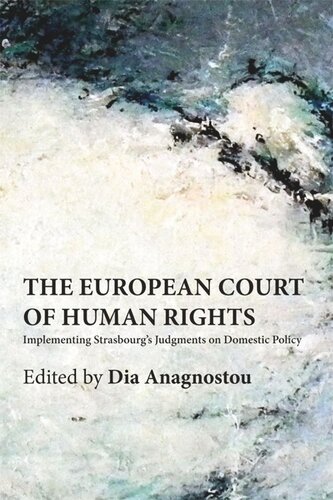

Most ebook files are in PDF format, so you can easily read them using various software such as Foxit Reader or directly on the Google Chrome browser.
Some ebook files are released by publishers in other formats such as .awz, .mobi, .epub, .fb2, etc. You may need to install specific software to read these formats on mobile/PC, such as Calibre.
Please read the tutorial at this link: https://ebookbell.com/faq
We offer FREE conversion to the popular formats you request; however, this may take some time. Therefore, right after payment, please email us, and we will try to provide the service as quickly as possible.
For some exceptional file formats or broken links (if any), please refrain from opening any disputes. Instead, email us first, and we will try to assist within a maximum of 6 hours.
EbookBell Team

4.0
46 reviewsSince the turn of the millennium, the European Court of Human Rights has been the transnational setting for a European-wide ‘rights revolution’. One of the most remarkable characteristics of the European Convention of Human Rights and its highly acclaimed judicial tribunal in Strasbourg is the extensive obligations of the contracting states to give observable effect to its judgments.
Dia Anagnostou explores the domestic execution of the European Court of Human Rights’ judgments and dissects the variable patterns of implementation within and across states. She relates how marginalised individuals, civil society and minority actors strategically take recourse in the Strasbourg Court to challenge state laws, policies and practices. These bottom-up dynamics influencing the domestic implementation of human rights have been little explored in the scholarly literature until now.
By adopting an inter-disciplinary perspective, Anagnostou goes beyond the existing studies - mainly legal and descriptive - and contributes to the flourishing scholarship on human rights, courts and legal processes, and their consequences for national politics.